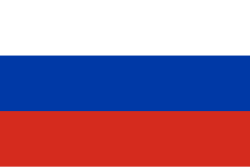| Russian Empire at the 1900 Summer Olympics | |
|---|---|
 | |
| IOC code | RU1 |
| in Paris | |
| Competitors | 4 in 2 sports |
| Medals |
|
| Summer Olympics appearances (overview) | |
| Other related appearances | |
The Russian Empire competed at the 1900 Summer Olympics in Paris. It was the first appearance of the European nation, which had entered the names of competitors for the first modern Olympics in 1896 but had failed to appear.